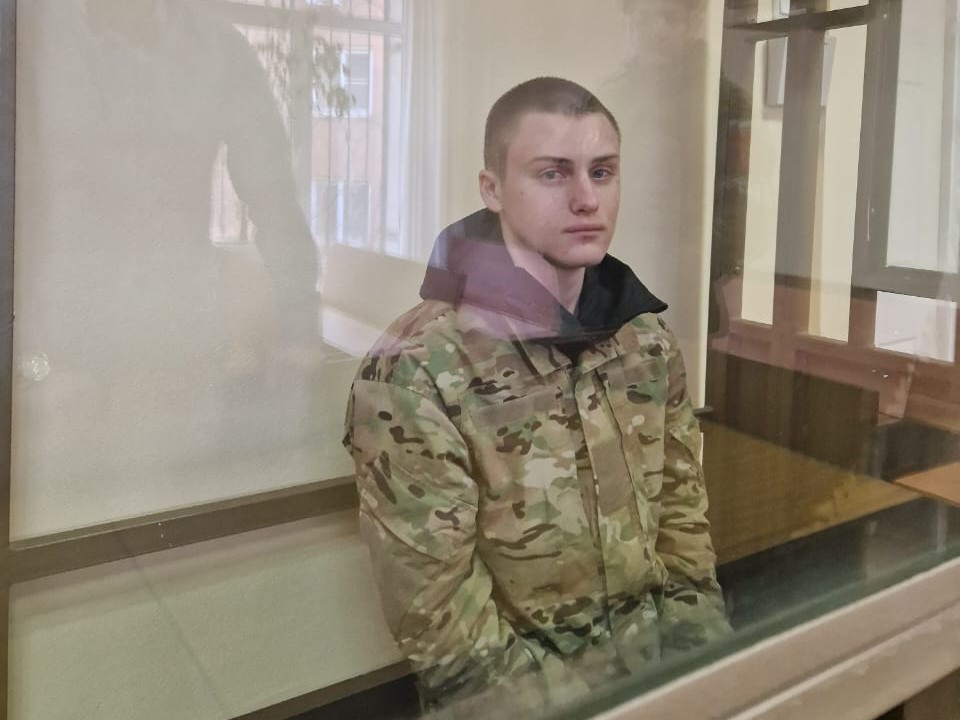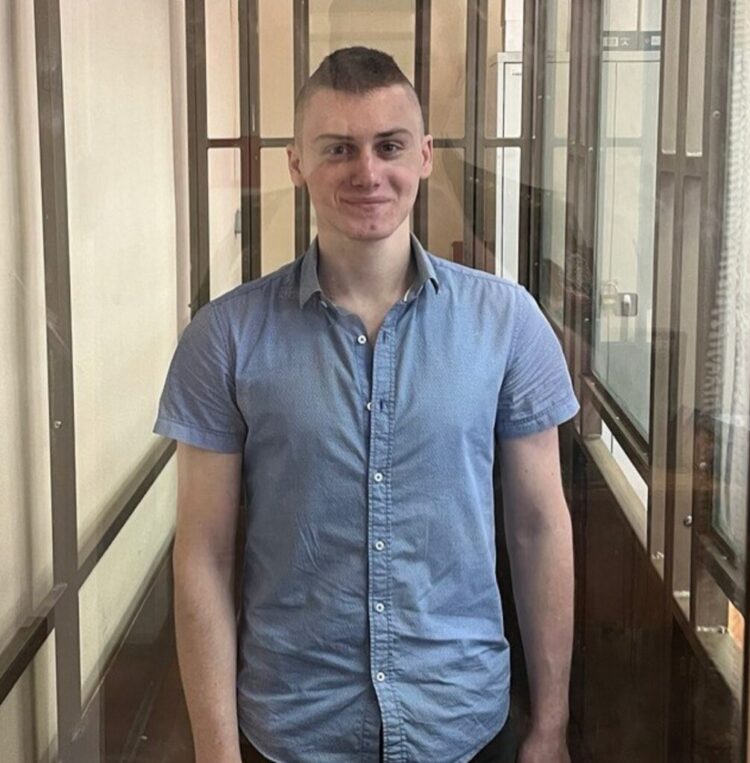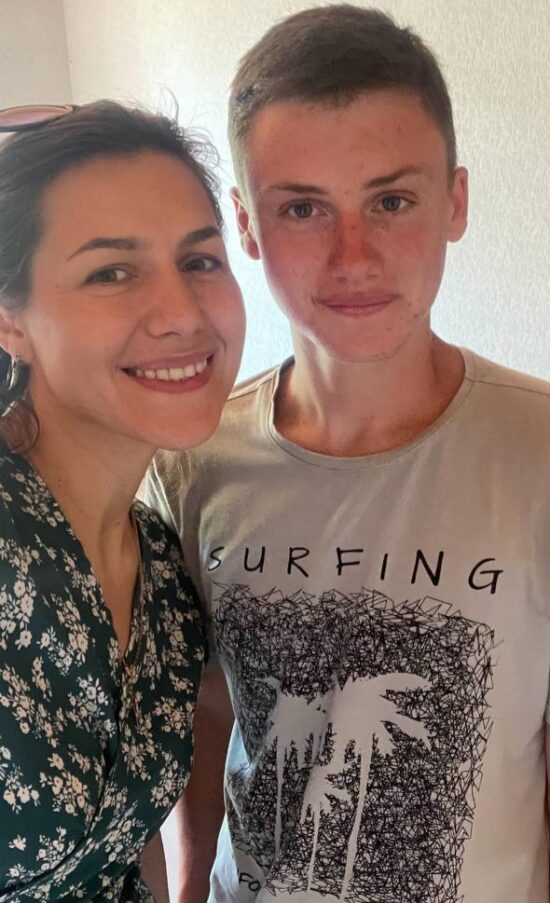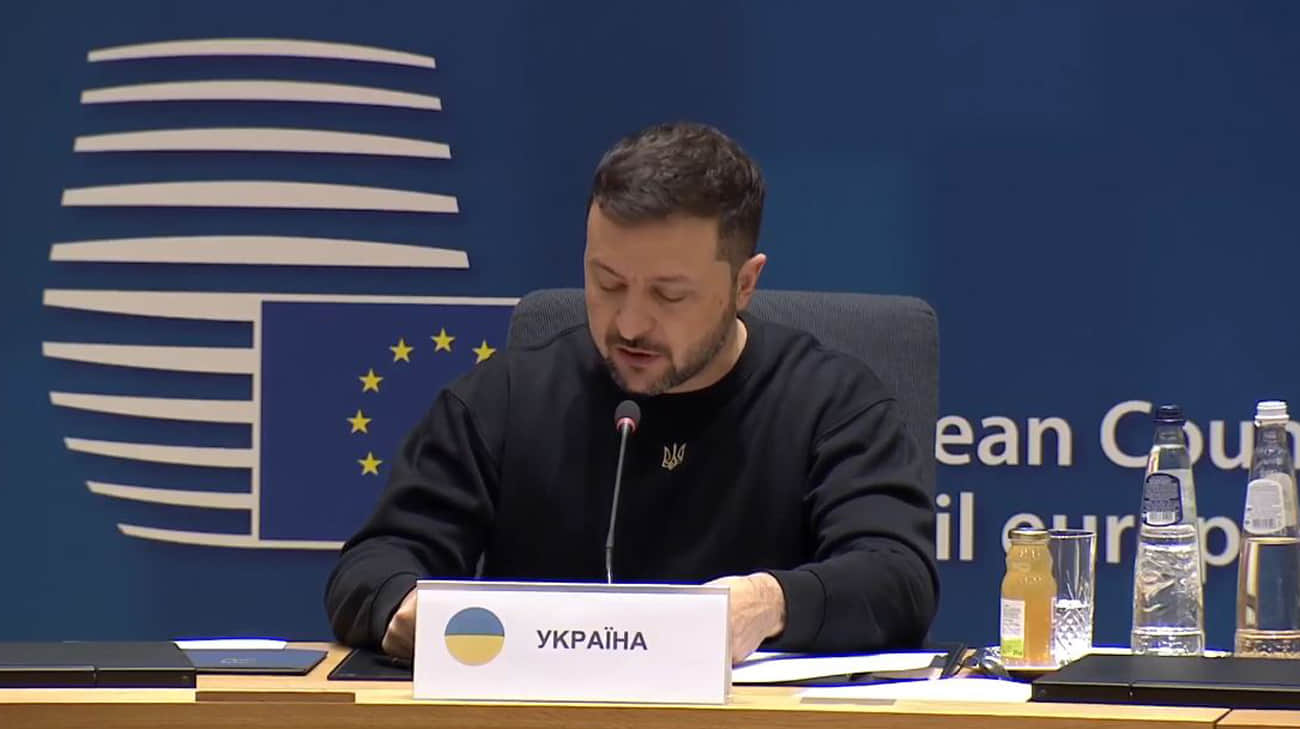Sister battles to rescue teen brother from Russian torture camps
Kyrylo Rozumiei kidnapped by collaborators in Kherson Oblast as terror grips Ukraine’s occupied territories.


When Russian forces occupied Ukrainian cities at the start of the full-scale invasion in February 2022, many residents chose to stay, anticipating quick liberation. Their decision didn’t mean they accepted Russian rule, but rather stemmed from loyalty to their homeland, city, and family.
Their choice carried dangerous consequences.
In Kherson Oblast, what began as a relatively peaceful occupation, where Ukrainians could still show some resistance, has been gradually transformed into quiet terror. Russian occupation forces now intimidate local residents and kidnap people, labeling certain individuals as “enemies.” Some residents inform on each other as the intimidation continues wherever Russian invaders remain.
Kyrylo Rozumiei, a resident of Kherson Oblast, was 17 when the full-scale invasion began. Despite the occupation, he continued his studies, helped his family, and lived an ordinary student life. However, in the occupied territories, Ukrainians who openly disagree with the Russian regime eventually come into conflict with those who consciously side with the occupation regime. This is exactly what happened in Kyrylo’s case.

Eventually, Kyrylo was grabbed as well, recounts his sister Daria Sakhno in a video interview with Hromadske Radio.
In fact, following apparent surveillance, Kyrylo was kidnapped on 4 May 2023 by a local resident who served as a municipal officer appointed by the occupation authorities.
This individual delivered Kyrylo to a Russian checkpoint, after which the young man disappeared for nearly a year. During this time, he was held in basements and other locations where “evidence” against him was collected. He was forced to give false testimonies under physical force and psychological pressure.
An earlier incident may have precipitated Kyrylo’s kidnapping, says Daria. In their small village of just ten houses, the Russians had appointed a local collaborator as a municipal official during the occupation. Kyrylo knew this person and left a comment on his Facebook post, writing, “You won’t be in charge much longer – when our soldiers come, you’ll get what you deserve.”
The next day, this official visited Kyrylo’s parents. “Keep your child on a leash, or things will get bad,’ he warned the father. A week later, Kyrylo disappeared, Daria told Hromadske Radio.
The investigation also revealed disturbing details about Kyrylo’s friend, whose chat history with him was used as evidence. After Kyrylo’s disappearance, Daria reached out to this friend, who had already left for Kyiv. When she requested screenshots of their conversations, he shared some that showed their harsh criticism of Russians.
The family’s search for Kyrylo was particularly difficult during the flooding of Nova Kakhovka following the Russian attack on the Kakhovka Reservoir and subsequent dam breach. Hoping to find Kyrylo, his grandmother visited the Russian-occupied former police station daily, where underground “re-education” facilities were located.
“Stop coming here, or this will end badly for you,” the occupation authorities said as they threatened her at gunpoint.
“They also told us to submit DNA samples because they were finding bodies in the canal every day,” Daria says.
Through persistent searching and the creation of an account on a Russian portal, the family finally received news in February 2024 when a state-appointed lawyer from Rostov contacted them, revealing that Kyrylo was facing espionage charges. It had taken ten months to confirm his location.
During his detention in the Rostov penal colony, Kyrylo endured harsh treatment. According to his later letters, he experienced what his sister describes as “real hell,” including electric shocks and physical and psychological torture. He was forced to confess to being a spy. While he initially resisted, by February, he had broken down and confessed to actions he hadn’t committed.
The family eventually established contact through an app called Zonatelecom and began sending him food and books. On 4 October 2024, he was transferred to Chonhar, in occupied Kherson Oblast, and on 13 November, he was sentenced to eleven years in a strict-regime penal colony.
The conditions of Kyrylo’s detention varied across different facilities. During his time in Rostov’s basement detention center, he frequently fell ill. The situation improved somewhat after his transfer to occupied Chonhar, in Kherson Oblast, where the food was marginally better.
During his imprisonment, Kyrylo shared cells with various inmates, including Ukrainian soldiers from the Azov regiment and Russian military personnel who refused to fight. Despite the harsh circumstances, his letters home remain remarkably optimistic.
“What surprises me most is that in every letter, he confidently writes that the war will end soon and in our favor. He maintains an interest in what’s happening in the world events and even asks about current events,” his sister says.

His correspondence reveals glimpses of daily life in detention. “I haven’t seen the sun for 20 days,” he wrote in one letter. He described learning English from a detained teacher and becoming proficient at chess in prison tournaments. Through these letters, Daria was able to connect with relatives of other detainees, coordinating care packages and support.
Following Kyrylo’s sentencing to a strict-regime colony, the family remains focused on the appeals process. Their immediate goal is to keep Kyrylo in Chonhar, where his parents can continue delivering monthly care packages of up to 30 kilograms.
The limited communication channels remain a significant challenge. While Daria maintains updated records in Kyiv’s Coordination Headquarters database, adding new letters and documents as they become available, there is minimal feedback. The family’s only hope lies in a potential prisoner exchange.
Daria continues to advocate for her brother’s release while she lives in exile in the US Speaking about the challenges faced by families of hostages, she describes ongoing frustrations with Ukraine’s approach.
“Our members from the NGO Civilians in Captivity regularly attend meetings with the Coordination Headquarters and Dmytro Lubinets, Ukrainian Parliament Commissioner for Human Rights. But the response is always the same: ‘We’re developing a mechanism for returning civilian hostages.’ And that’s it. Nearly three years have passed, and this mechanism still hasn’t been developed.”
Daria highlights the lack of clear communication and procedural transparency. She emphasizes that families should be notified whenever names are submitted for exchange with Russia and if those exchanges are denied.
“My heart aches for my brother. I watch the news, and then I dream of meeting him as he steps off one of those buses in the middle of a field,” she says.
The uncertainty doesn’t end with captivity. Relatives have also raised concerns about the future of released hostages.
“During one of the meetings with the Coordination Headquarters, relatives requested that released civilians not be subjected to mandatory mobilization after their return. My brother is 20 years old now.
“He’ll likely spend two months in rehab, but then what? Will he be mobilized? These people need long-term physical recovery, proper nutrition, and psychological assistance,” said Daria.
Daria’s own journey underscores the challenges faced by many Ukrainian families. She and her husband have two children, including a daughter with a genetic condition requiring specialized care and equipment. Their life in occupied territory quickly became untenable.
Female Ukrainian judge jailed, shocked, threatened with firing squad in Russian captivity
“Before we left, we lived with friends for six weeks. Their house had a large basement where we hid during shelling. For the first few nights, there were 15 of us in total. We slept on three inflatable mattresses and chairs. But my daughter needs life-supporting equipment: a non-invasive ventilator, a cough-assist machine, and a suction device. We knew it was impossible to stay in those conditions.”
Daria recalls the day the family fled, on 6 April 2022, crossing mined fields and covering 200 kilometers in 12 hours.
They initially stayed in Lviv, hoping the war would end quickly. When it didn’t, they moved to Slovakia to secure rehabilitation for their daughter and later to Italy for specialized orthopedic equipment. Eventually, the family relocated to the United States under the Uniting for Ukraine (U4U) program, supported by friends.
The displacement and running have come at a significant cost. Daria’s parents remain in the occupied territory, where her grandmother was recently diagnosed with cancer. The family has lost their home and belongings, including an apartment purchased in 2020. Daria’s children are growing up without their grandparents and family members.
“Kyrylo is still in captivity. It feels like we started living on adrenaline in February 2022, and we’re still running on it. Otherwise, I think we would have given up by now.”
RELATED:
- Ukraine has documented more than 11,600 war crimes by Russian forces
- Russian war crimes in Katiuzhanka: torture chamber, toilets in classrooms, and stolen lingerie
- Russian war crimes. Mutilated bodies of Ukrainian soldiers found in trench in Kyiv Oblast
- Russia’s war crimes in Chernihiv Oblast: “They were beaten, tortured & executed…”
- Russian war crimes: is it possible to take Putin to justice?
You could close this page. Or you could join our community and help us produce more materials like this.
We keep our reporting open and accessible to everyone because we believe in the power of free information. This is why our small, cost-effective team depends on the support of readers like you to bring deliver timely news, quality analysis, and on-the-ground reports about Russia's war against Ukraine and Ukraine's struggle to build a democratic society.
A little bit goes a long way: for as little as the cost of one cup of coffee a month, you can help build bridges between Ukraine and the rest of the world, plus become a co-creator and vote for topics we should cover next. Become a patron or see other ways to support.


